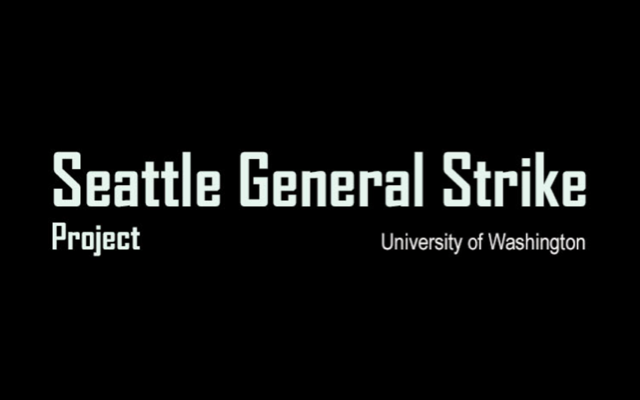
thank you for visiting the labor history resource project as we build this resource!

This multimedia website explores the history and consequences of the Seattle General Strike of 1919. Below you will find original research articles, digitized newspaper articles and other important documents, photographs, and extensive bibliographic materials.
The WTO History Project, a joint effort of several programs at the University of Washington – the Harry Bridges Center for Labor Studies, the Center for Communication and Civic Engagement, the Digital Initiatives project and the University of Washington Libraries Special Collections division of the…
The Wayne State University Library System, through its digital publishing initiatives, strives to bring unique, important, or institutionally relevant content to Wayne State University’s academic community and to the larger world. Our Digital Collections represent text, images, and audiovisual material that support this mission through…
The Howling Mob Society was a Pittsburgh-based group of anonymous artists, activists, and citizen historians with an interest in the oft-buried radical peoples’ history of the United States. We worked as a team throughout 2007-08 to research, fabricate, and install a series of ten historical markers which detail the events of the Great Railroad Strike of 1877 as they unfolded in Pittsburgh, PA.
Mother Jones Museum is the website of the Mother Jones Heritage Project, a 501-c-3 non-profit. We are guided by the philosophy & model of Mother Jones, whose base was in Chicago, but who went across the US to organize and fight for justice.
This project assembles the most extensive online collection of materials about labor history for this, or any other, region. Here you will find detailed information and primary sources about key historical events, including the Seattle General Strike of 1919, the unemployed movements and labor crusades…
“And that’s how we did in the mill” is based on excerpts from oral histories with the last generation of women to work in the Lowell, Massachusetts textile mills, recorded by filmmaker Martha Norkunas in 1983.
The Bracero History Archive collects and makes available the oral histories and artifacts pertaining to the Bracero program, a guest worker initiative that spanned the years 1942-1964. Millions of Mexican agricultural workers crossed the border under the program to work in more than half of…
The ongoing Red for Ed movement in Arizona sparks an interesting discussion on its place as a social movement. This thesis examines the movement in close detail, particularly in regard to how it fits within the social movement literature’s insider/outsider framework.
Interactive maps covering campaigns, strikes, arrests and events involving IWW.